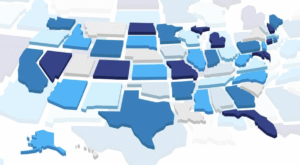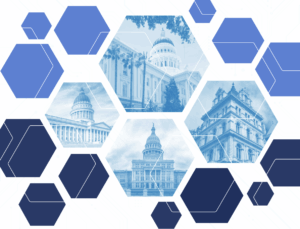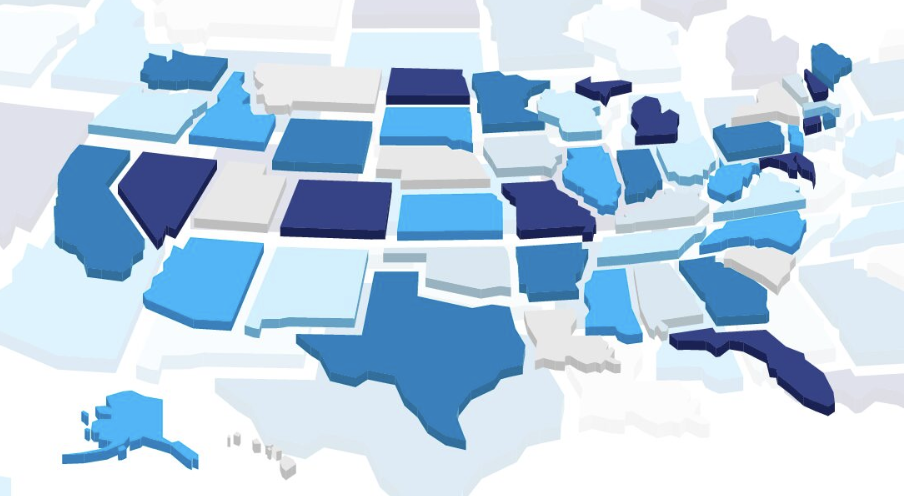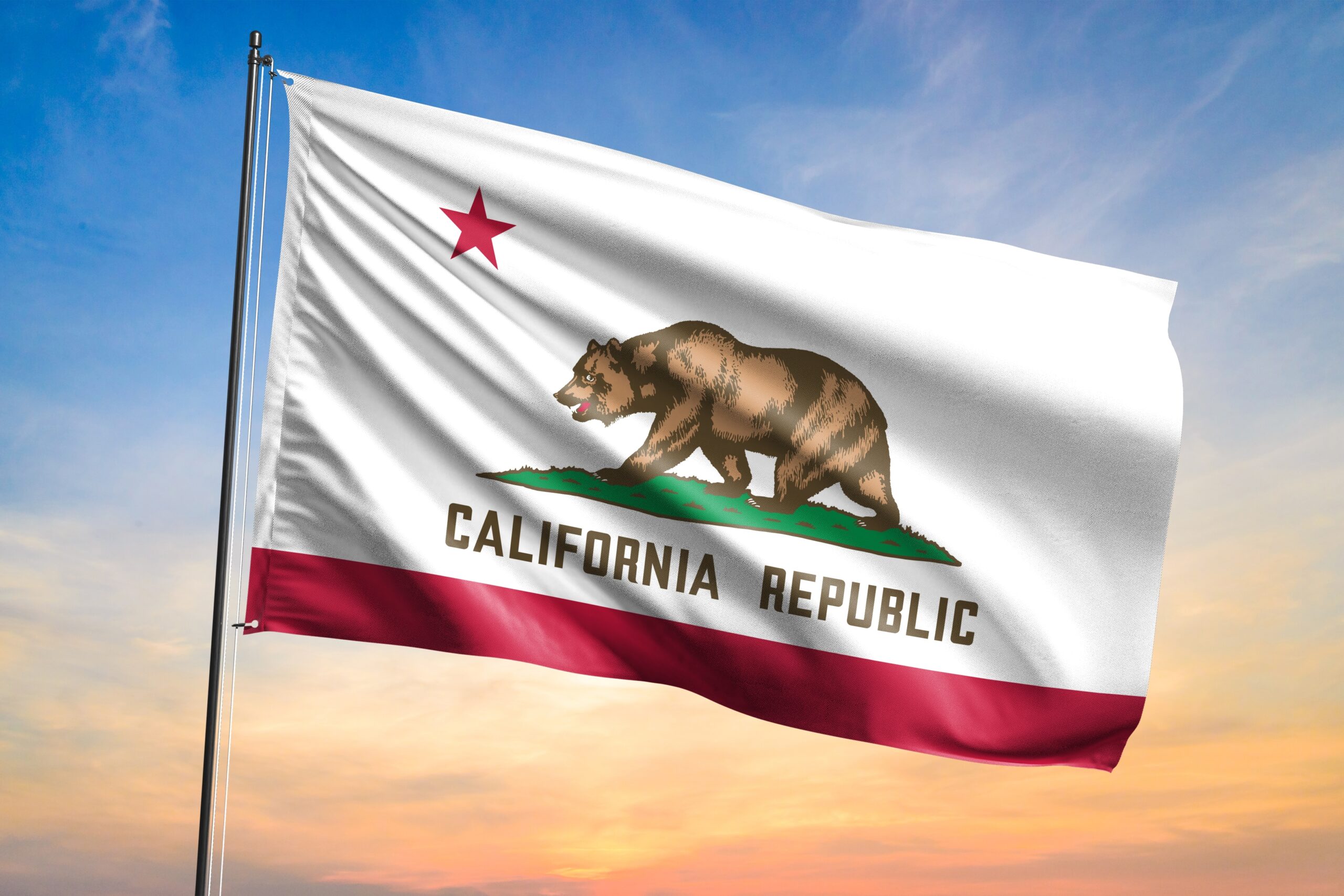Across the United States, evolving data collection and processing practices are driving digital services and socially beneficial research, but also pose increasing risks to individuals and communities that America’s existing sectoral privacy frameworks are insufficient to govern. In response, leaders in law and policy are considering more comprehensive approaches to privacy regulation, which establish baseline rights and protections for personal data throughout the economy. Years of negotiations in Congress culminated in the introduction of the bipartisan American Data Privacy and Protection Act in 2022; however, its fate remains uncertain. In the absence of federal legislation, five U.S. states—California, Virginia, Colorado, Utah, and Connecticut— enacted comprehensive consumer privacy laws between 2018-2022.
The Future of Privacy Forum provides expert, independent analysis of legislative and regulatory approaches to protecting data privacy interests. FPF does not typically support or oppose particular bills, but instead focuses on analyzing proposals in relation to existing privacy frameworks, sharing information on current data practices and technologies, and ensuring that data governance strategies are future-looking and adaptable.
FPF also engages with the broader privacy community through reports, blog posts, webinars, and educational programs such as the CPRA Law + Tech Series. It is our view that robust and durable policy outcomes can be achieved when all stakeholders are equipped to understand the key technologies, business practices, and legal mechanisms available to regulate privacy and data protection. FPF’s legislation work is led by Tatiana Rice, Senior Director.
Featured
FPF Retrospective: U.S. Privacy Enforcement in 2025
The U.S. privacy law landscape continues to mature as new laws go into effect, cure periods expire, and regulators interpret the law through enforcement actions and guidance. State attorneys general and the Federal Trade Commission act as the country’s de facto privacy regulators, regularly bringing enforcement actions under legal authorities both old and new. For […]
Future of Privacy Forum to Honor Top Scholarship at Annual Privacy Papers for Policymakers Event
Washington D.C. — (January 26th, 2026) — Today, the Future of Privacy Forum (FPF) — a global non-profit that advances principled and pragmatic data protection, AI, and digital governance practices — announced the winners of its 16th annual Privacy Papers for Policymakers (PPPM) Awards. The PPPM Awards recognize leading research and analytical scholarship in privacy […]
The RAISE Act vs. SB 53: A Tale of Two Frontier AI Laws
What the enactment of New York’s RAISE Act reveals compared to California’s SB 53, the nation’s first frontier AI law On December 19, New York Governor Hochul (D) signed the Responsible AI Safety and Education (RAISE) Act, ending months of uncertainty after the bill passed the legislature in June and making New York the second […]
FPF Year in Review 2025
Co-authored by FPF Communications Intern Celeste Valentino with contributions from FPF Global Communications Manager Joana Bala This year, FPF continued to broaden its footprint across priority areas of data governance, further expanding activities across a range of cross-sector topics, including AI, Youth, Conflict of Laws, AgeTech (seniors), and Cyber-Security. We have engaged extensively at the local […]
Five Big Questions (and Zero Predictions) for the U.S. Privacy and AI Landscape in 2026
Introduction For better or worse, the U.S. is heading into 2026 under a familiar backdrop: no comprehensive federal privacy law, plenty of federal rumblings, and state legislators showing no signs of slowing down. What has changed is just how intertwined privacy, youth, and AI policy debates have become, whether the issue is sensitive data, data-driven […]
FPF Releases Updated Report on the State Comprehensive Privacy Law Landscape
The state privacy landscape continues to evolve year-to-year. Although no new comprehensive privacy laws were enacted in 2025, nine states amended their existing laws and regulators increased enforcement activity, providing further clarity (and new questions) about the meaning of the law. Today FPF is releasing its second annual report on the state comprehensive privacy law […]
What’s New in COPPA 2.0? A Summary of the Proposed Changes
On November 25th, U.S. House Energy and Commerce introduced a comprehensive bill package to advance child online privacy and safety, which included its own version of the Children and Teens’ Online Privacy Protection Act (“COPPA 2.0”) to modernize COPPA. First enacted in 1998, the Children’s Online Privacy Protection Act (COPPA) is a federal law that […]
Understanding the New Wave of Chatbot Legislation: California SB 243 and Beyond
As more states consider how to govern AI-powered chatbots, California’s SB 243 joins New York’s S-3008C as one of the first few enacted laws governing companion chatbots and stands out as the first to include protections tailored to minors. Signed by Governor Gavin Newsom this month, the law focuses on transparency and youth safety, requiring […]
FPF Releases Issue Brief on New CCPA Regulations for Automated Decisionmaking Technology, Risk Assessments, and Cybersecurity Audits
Since the California Consumer Privacy Act (CCPA) was enacted in 2018, business obligations under the law have continued to evolve due to several rounds of rulemaking by both the Attorney General and the California Privacy Protection Agency (CPPA). The latest regulations from the CPPA are some of the most significant yet. Starting January 1, 2026, […]
California’s SB 53: The First Frontier AI Law, Explained
California Enacts First Frontier AI Law as New York Weighs Its Own On September 29, Governor Newsom (D) signed SB 53, the “Transparency in Frontier Artificial Intelligence Act (TFAIA),” authored by Sen. Scott Wiener (D). The law makes California the first state to enact a statute specifically targeting frontier artificial intelligence (AI) safety and transparency. […]

















